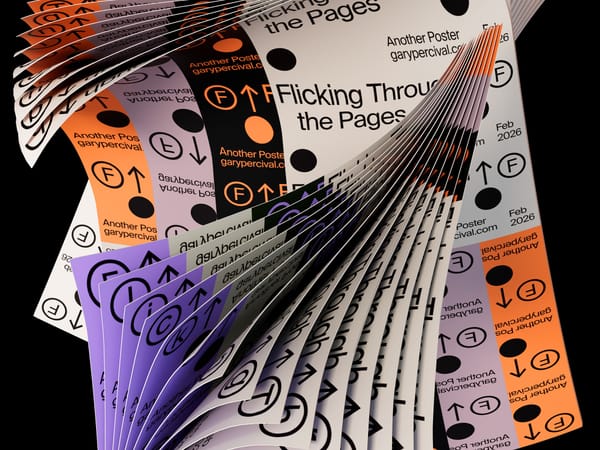Not Your Circus, Not Your Clowns: Letting People Stay Wrong
“You don’t have to jump into every mess you’re invited to.”

As a freelancer, graphic designer, or creative, it’s natural to care deeply about your work.
You pour thought, skill, and craft into every pixel, every word, and every campaign.
Which is why it feels so personal when someone misunderstands you, challenges your expertise, or—let’s be honest—just flat-out gets it wrong.
The urge to correct them, educate them, or even fight back can be strong.
“If I just explain it better, they’ll get it.”
“If I argue harder, they’ll finally see my value.”
“If I prove them wrong, they’ll respect me.”
But here’s a hard-won truth every creative eventually learns:
You don’t have to jump into every mess you’re invited to.
In fact, most of the time, the best thing you can do is smile, step back, and think:
“Not my circus. Not my clowns.”
Let’s talk about why letting people stay wrong is one of the most powerful moves you can make—and how to do it without losing your sanity (or your reputation).
Why the Urge to Correct Everyone Is So Strong
Creatives often have a natural drive to fix misunderstandings.
You’re a problem-solver by nature.
Design is about communication. Writing is about connection. Branding is about clarity.
So when someone misses the point—when a client misinterprets your work or a peer criticises it unfairly—your instinct kicks in:
- Fix the misunderstanding.
- Set the record straight.
- Defend your idea.
And sometimes, yes—clarification is helpful.
Especially when it moves a project forward or strengthens a relationship.
But not every misunderstanding deserves your energy.
Not every wrong opinion needs to be corrected.
Because sometimes, arguing isn’t productive. It’s just wrestling with clowns.
The Hidden Costs of Fighting Every Misunderstanding
When you feel like you have to fix everything, you pay for it in ways you might not realise:
You Burn Precious Energy
Every moment spent explaining yourself to someone who doesn’t want to understand you is a moment stolen from your real work:
- Crafting better projects
- Pitching great clients
- Growing your creative voice
Energy is a limited resource—and wasting it on unwinnable arguments drains the fuel you need for meaningful progress.
You Get Pulled Off Course
Fighting every battle pulls your focus toward negativity, frustration, and resentment.
Instead of asking, “What can I build today?”, you’re asking, “How do I win this argument?”
That’s a fast path to creative burnout.
You Risk Your Professional Reputation
Clients, collaborators, and even online followers notice how you handle disagreement.
If you’re constantly defensive, argumentative, or combative, you start to look insecure—not confident.
True professionals know when to engage—and when to gracefully disengage.
The Types of People It’s Best to Let Stay Wrong
Some people misunderstand you by accident. Others misunderstand you because they want to.
Here are a few types it’s almost always better to walk away from:
The Wilfully Ignorant
These are the people who have already decided they know better—facts, expertise, and evidence be damned.
They’re not looking for a conversation. They’re looking for validation.
You won’t change their mind because they don’t want it changed.
Save your breath.
The Chronic Undervaluers
Some clients or contacts will never see the true worth of creative work.
No matter how much you explain, they’ll always believe design is just “making things pretty” or writing is “just words”.
Don’t waste time trying to teach respect to people who are committed to misunderstanding the value of creativity.
The Argument Addicts
Some people just love conflict.
They’re more interested in “winning” the conversation than understanding your point.
Fighting them doesn’t move anything forward—it just feeds their appetite for drama.
When It Is Worth Speaking Up
Of course, there are moments when correcting someone or defending yourself is important—especially when silence could cause real harm.
You should speak up when:
- A misunderstanding risks damaging your reputation or career.
- Silence would imply agreement with something unethical or discriminatory.
- A correction would genuinely improve a professional relationship.
But even then, it’s about being strategic, not emotional.
Correct with clarity and professionalism, and then move on.
You’re not trying to “win”—you’re trying to protect what matters.
How to Let People Stay Wrong Without Losing Your Cool
Letting people stay wrong isn’t about being passive or bitter. It’s an active choice to protect your energy for better things.
Here’s how to practise it:
Ask: Will correcting this change anything important?
If the answer is no, you have your answer.
Move on.
See the Bigger Picture
One misunderstanding doesn’t define your career.
One stubborn client doesn’t define your reputation.
Zoom out. Focus on the long game.
Respond With Silence or Kind Redirection
Sometimes the best response is none at all.
Other times, a simple redirect like, “Thanks for your input—I’m comfortable with the approach we’re taking,” ends the discussion without fuelling a fire.
Use Boundaries, Not Battles
If someone continually misunderstands or mistreats you, set a clear boundary:
- End the project.
- Decline future work.
- Unfollow, mute, or block if needed.
Boundaries are clean, professional, and final—no circus required.
Why This Skill Matters More Than Ever
In today’s world—where opinions fly faster than facts and everyone seems ready for a fight—knowing when not to engage is an essential creative survival skill.
Every argument you avoid gives you more time, more focus, and more creative energy to put into your real work.
Every battle you choose not to fight frees you up to build, design, and create at your highest level.
The creatives who succeed long-term aren’t the ones who win every argument.
They’re the ones who save their strength for battles that actually move the needle.
Final Thought: Keep Building, Not Brawling
At the end of the day, here’s what matters:
You’re not here to convince every stubborn client, every grumpy internet stranger, or every bad-fit collaborator that you’re right.
You’re here to do great work.
You’re here to find the right clients and collaborators who already get it.
You’re here to grow a creative career built on strength, not squabbles.
So the next time someone misunderstands you, underestimates you, or misjudges your work?
Smile. Breathe.
And think to yourself: Not my circus. Not my clowns.
Then get back to building the extraordinary career you’re meant to have.



